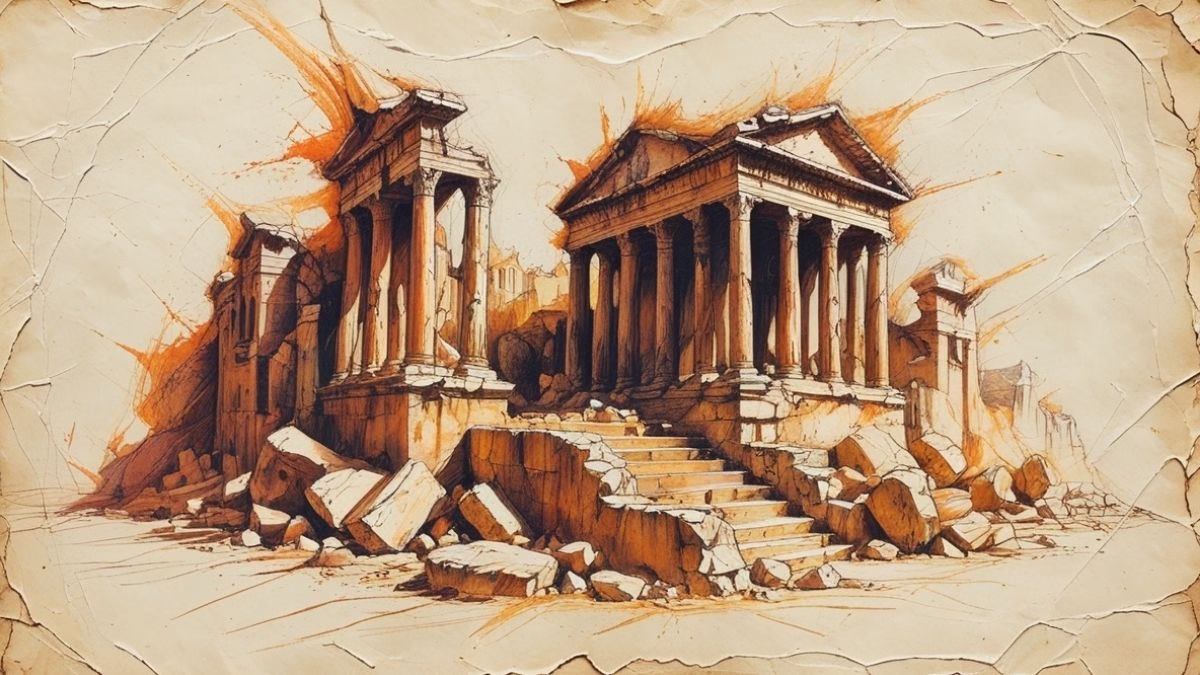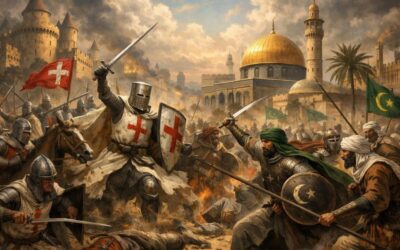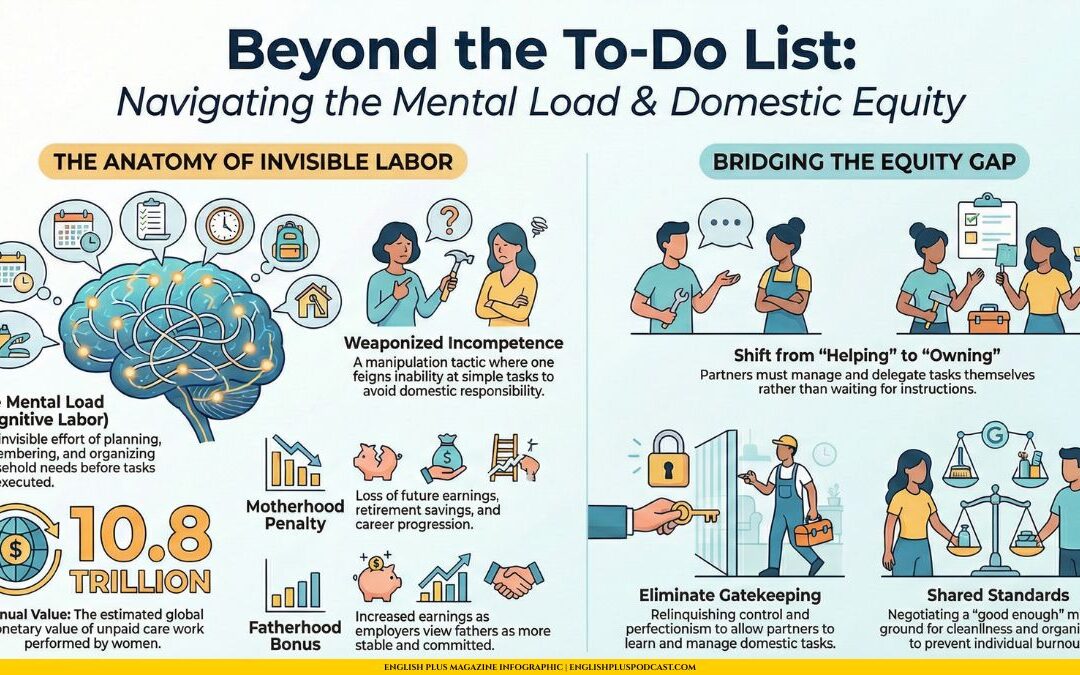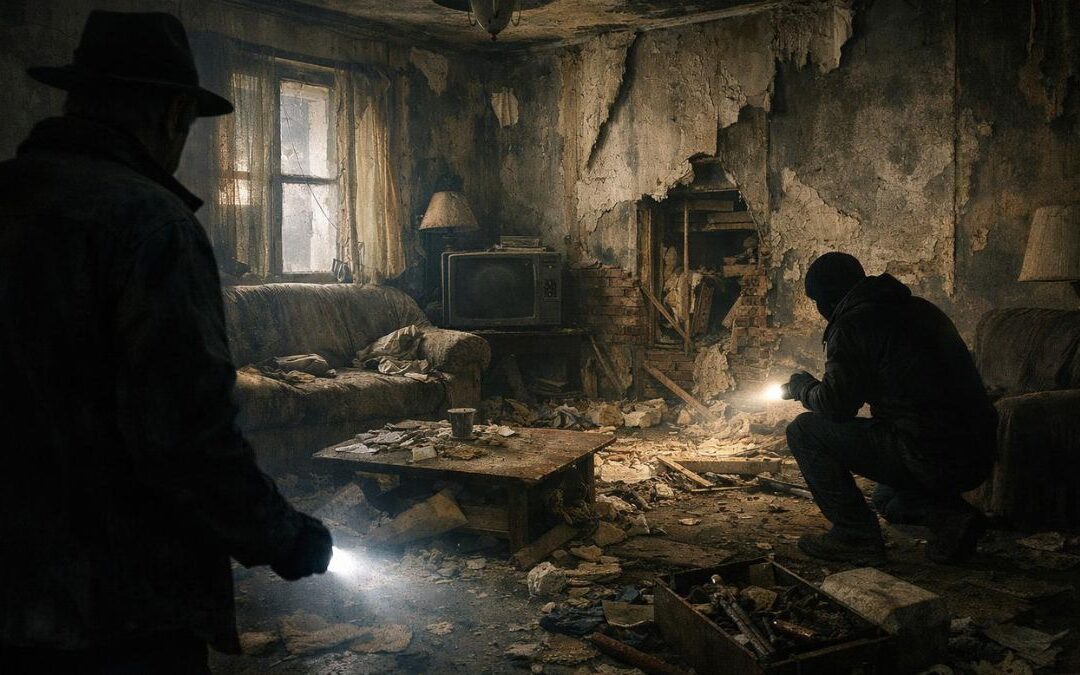SparkCast Episode
The SparkCast episode is not just a reading of the article below; it’s a lively discussion based on the topic of the article, so you don’t want to miss it!
[ppp_patron_only level=5]
[/ppp_patron_only]
How Does a Giant Fall?
Have you ever wondered how something that seems invincible, something that defines the entire world, can just… end? That’s the question that has fascinated historians for centuries when they look at the fall of the Roman Empire. We tend to imagine a single, cataclysmic event—a final battle, a city in flames. But the truth is so much more interesting, and honestly, a little more terrifying. The fall of Rome wasn’t a sudden death; it was a long, slow illness with a thousand different symptoms.
It’s The Economy, Stupid! (Even in 476 AD)
Before the barbarians were even at the gates, they were inside the wallet. The Roman Empire was struggling with a serious cash-flow problem. The constant wars and the sheer size of the empire were incredibly expensive. To pay for it all, emperors started “debasing” the currency—they minted coins with less and less precious metal, like silver, and more cheap filler. Sound familiar? This led to runaway inflation. Prices skyrocketed, people’s savings became worthless, and trust in the economy evaporated. Add to that crushing taxes levied on the working class to support the army and the bureaucracy, and you have a recipe for economic collapse and widespread poverty.
An Army of Strangers
What do you do when your own citizens don’t want to join the army anymore? You hire someone else to do your fighting. By the later years of the empire, the Roman legions were increasingly filled with mercenaries and soldiers from the very “barbarian” tribes they were supposed to be fighting, like the Goths and Vandals. These soldiers had little to no loyalty to the idea of Rome; their allegiance was to their paychecks and their generals. This led to a less reliable, less effective military and, on several occasions, to these foreign-born armies turning on their Roman masters or even marching on Rome itself.
The Rot from Within
While the economy was failing and the military was fragmenting, the political system was a hot mess. The period leading up to the fall was marked by extreme political instability. In one 50-year stretch in the 3rd century, there were more than 20 different emperors, most of whom were assassinated. The government was rife with corruption, the civil service was bloated and inefficient, and the vast empire became almost impossible to govern effectively. The decision to split the empire into an Eastern and Western half in 285 AD was a practical one, but it also meant that when the Western Empire was in deep trouble, the richer, more stable Eastern (Byzantine) Empire often just watched from the sidelines.
The Final Push and the Lingering Ghost
So yes, invasions by external tribes were a major factor, the final nail in the coffin. But they weren’t attacking a healthy, unified superpower. They were pushing on a structure that was already rotten to its core. When the last Western Roman Emperor, Romulus Augustulus, was deposed in 476 AD, it was less of a world-shattering event and more of a final, quiet sigh. The consequences, however, were immense. Europe fractured into smaller kingdoms, trade networks collapsed, and much of the learning and engineering of the ancient world was lost for centuries. But the ghost of Rome never left. Its language shaped our own, its laws form the basis of many legal systems, and its epic story of rise and fall serves as a permanent, cautionary tale for every great power that has come since.
What parallels, if any, do you see between the challenges faced by the late Roman Empire and the challenges our own societies face today? Share your insights in the comments.
Deep Discussion Questions:
- Of the causes discussed (economic, military, political), which do you think was the most significant in the fall of Rome? Why?
- Do you think any nation or empire is “too big to fail”? What lessons can modern leaders learn from Rome’s collapse?
- The fall of Rome led to the “Dark Ages” but also paved the way for the development of modern European nations. Can a major societal collapse ever be a good thing in the long run?
Speaking Challenge:
Imagine you are a Roman citizen in the year 450 AD. In 60 seconds, describe your daily worries to a friend. Talk about the price of bread, the news of distant wars, and your lack of faith in the emperor.
Hint for English Learners: Use phrases of worry and uncertainty. “I’m so worried about…,” “It seems like…,” “I just don’t know if…,” “Have you heard the news about…?” This is great practice for expressing opinions and emotions.









0 Comments